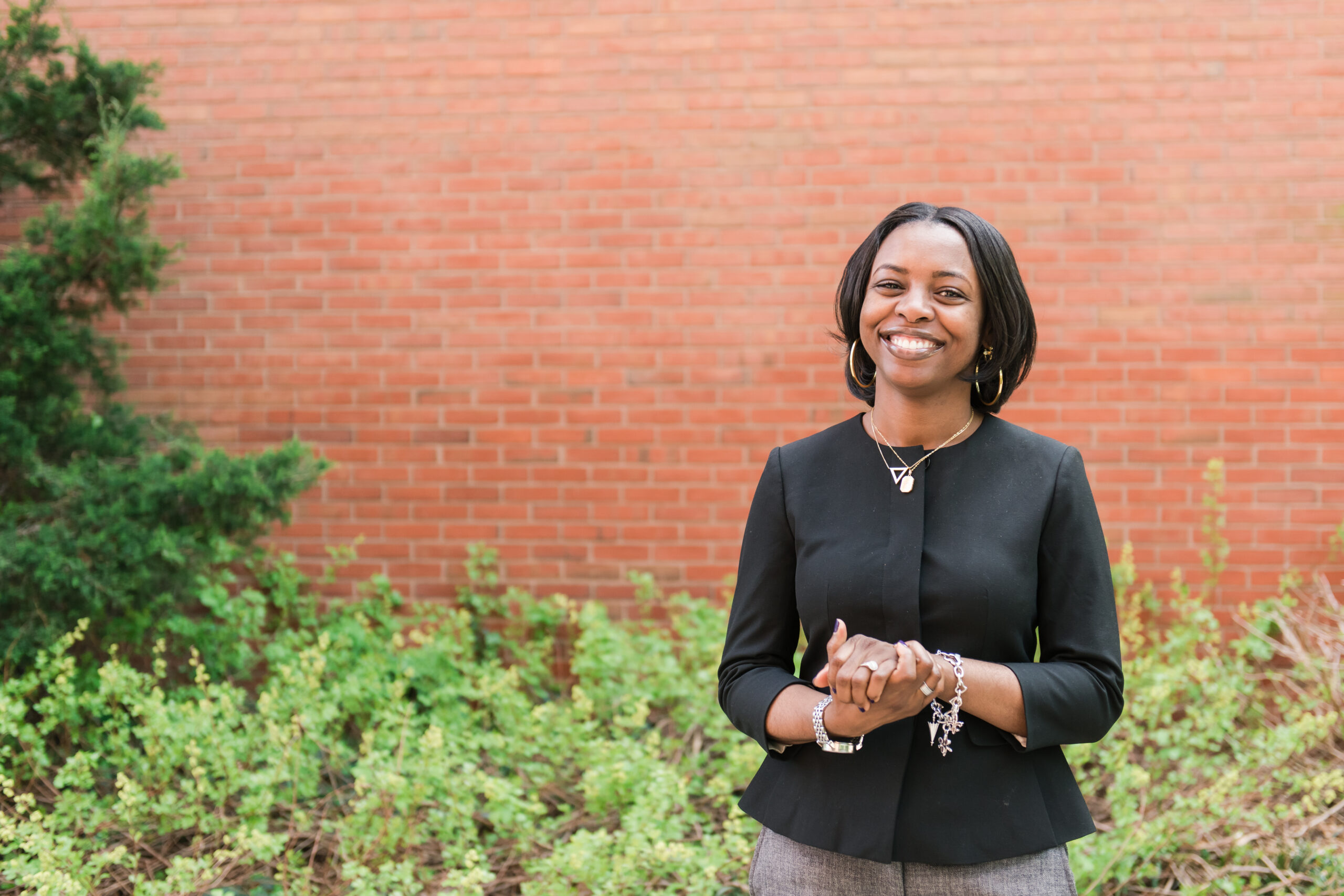Just as the classes she’s teaching wrap up, Danielle L. Beatty Moody, assistant professor of psychology, will embark on a year-long learning experience of her own. She’ll join the 2017 – 2018 cohort of the Professional Mentoring Skills Enhancing Diversity program, or PROMISED.
“One of the central goals of the program is to strengthen and bolster support for the pipeline of individuals from underrepresented backgrounds in the biomedical sciences from graduate to faculty positions,” says Beatty Moody of the competitive, NIH-sponsored fellowship program funded by the National Research Mentoring Network. “That’s the ultimate goal.”
The fellowship includes an introductory three-day conference, independent online modules, weekly teleconferences with fellow PROMISED participants, and guidance from highly experienced mentors. All aspects of the program are intended to improve the fellows’ leadership and mentoring skills so they can effectively support aspiring researchers from a wide range of backgrounds.
Beatty Moody is looking forward to learning best practices for “mentoring and guiding individuals who desire to develop breadth and scope as researchers and professionals,” she says, which could include first-generation college students, immigrants, or people with disabilities, among others. She hopes to better support students in reaching their goals, based on their individual experiences, needs, and interests. “Mentoring is not a one-size-fits-all model,” she emphasizes.
By completing the program, fellows earn a certificate in leadership from the Institute for Clinical Research Education at the University of Pittsburgh, which is also the site of the initial conference. The leadership modules include topics such as better understanding the complexities of academia, setting the culture in a higher education context, and managing research teams.
Beatty Moody intends to share what she learns with UMBC colleagues, and hopes to support the commitment and growing interests around mentorship at UMBC. “I’m most excited about the culture that such opportunities have the capacity to develop,” she says.
As a psychologist, Beatty Moody’s research focuses on how health disparities—specifically, rates of cardiovascular disease—between people of color and other groups in the United States may be generated by social and cultural factors. Ultimately, she wants to take her work beyond the academic sphere. “Policy has always been a passion for me. It’s one thing to do the work and to demonstrate the significance of these linkages,” she says, but “it’s another to take that journal off the shelf and ask, ‘How do we implement something that will undo what these data are showing?’”
Beatty Moody is especially excited about the growing diversity of graduate students and faculty in the human services psychology program at UMBC, and the wide range of research topics they’re pursuing. “Programs like PROMISED enable us to shore up diversity in research questions and methodologies,” she says, “so that more junior scholars have a strong start in creating a foundation for a career that can ultimately support greater equity in our society.”
Image: Danielle L. Beatty Moody; photo by Marlayna Demond ’11 for UMBC.
Tags: CAHSS, diversityandinclusion, Psychology, Research

